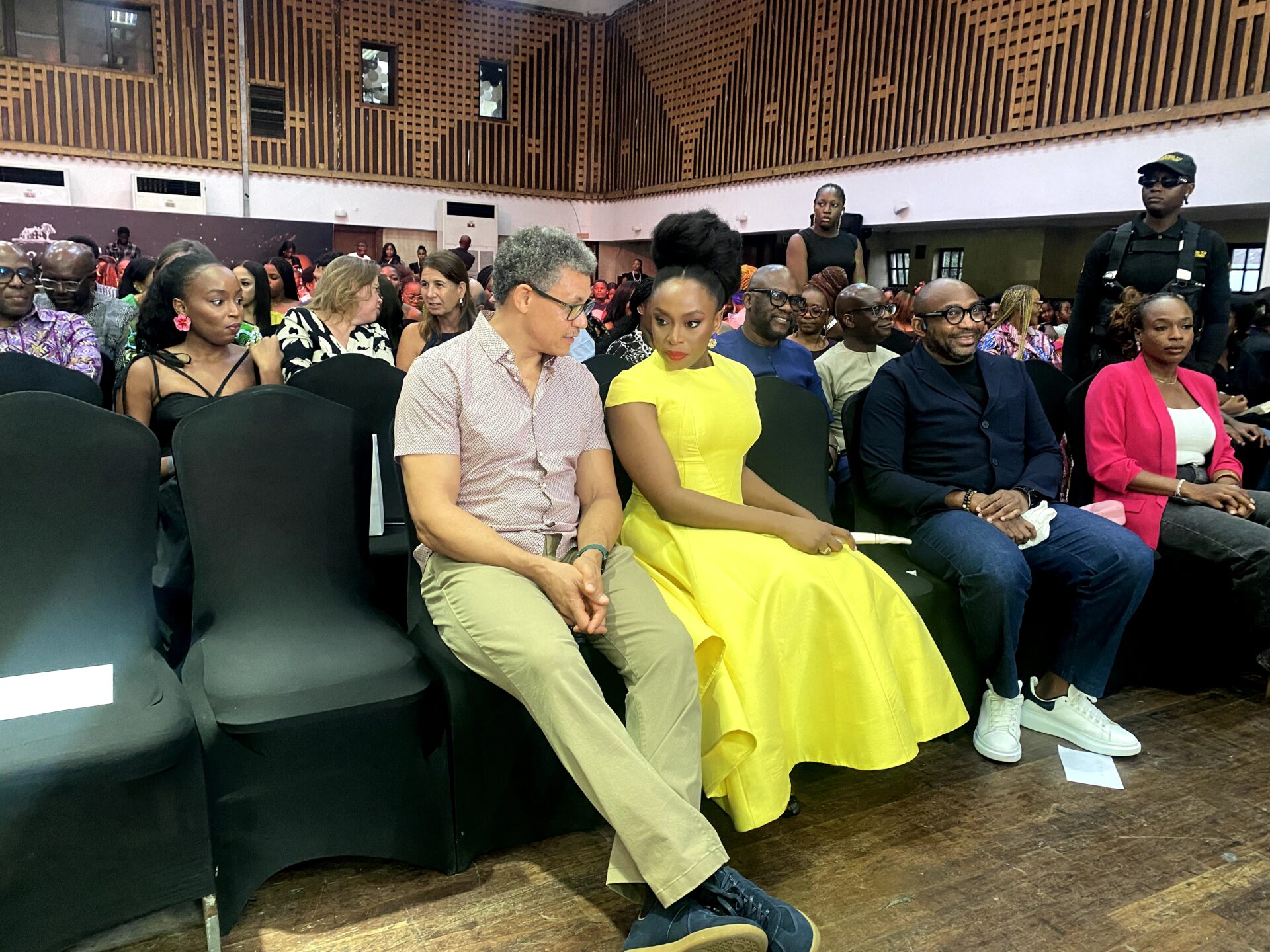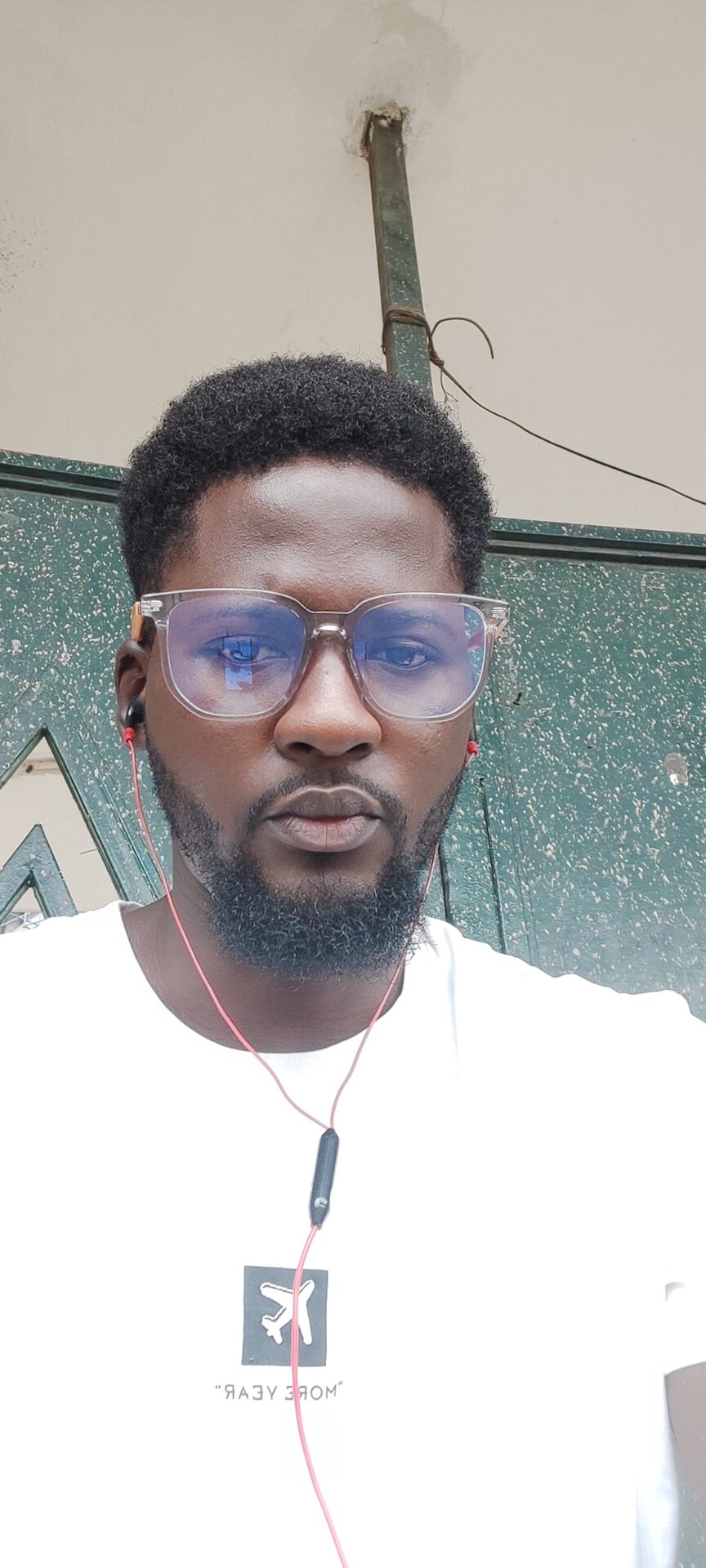
Top 30 Cartoon Characters That Were Villains
Our list rounds up the top 30 cartoon characters that were villains, each one more wonderfully wicked than the last.
Chimamanda Ngozi Adichie
The Homecoming Tour, held at the Muson Centre, Lagos, on the 27th of June, 2025, saw Chimamanda discuss Dream Count, writing and AI.

Chimamanda Ngozi Adichie’s latest literary fiction release, Dream Count, as well as matters pertaining to publishing, and the creative writing arts, formed the crux of an engrossing book discussion anchored by Nigerian media personality, Ebuka Obi-Uchendu, in the first leg of The Homecoming Tour, which held at the Muson Centre, Lagos, on Friday the 27th of June, 2025.
Garbed in a stunning yellow gown, arguably the greatest African writer of her generation, Odeluwa, her chieftancy symbol in hand, cut the graceful figure of the elite intellectual, albeit with a relaxed, playful demeanor in tune with an audience in sync with her unique Nigerian roots.
In a prelude to the book chat, Nigerian pianist and cinematic score weaver Emmanuel Sunday thrilled the audience with a wonderful musical performance, followed by an equally sensational spoken word poetry presentation by JoyToTheWords.
Anwuli Ojogwu, co-founder of Narrative Landscape Press, set the tone for the remainder of the evening in her opening address, remarking that Chimamanda “doesn’t just write about people, she writes about lives.”
She emphasized the importance of Chimamanda’s political writing, stating, “What should a writer be, if not political? She reminds us that literature is not neutral. It is meant to move, to provoke…”

The Homecoming Tour revolves around Odeluwa’s latest book, Dream Count, which, naturally, took centre stage in the book discussion.
Chimamanda shed some light on the creative process for her book, echoing a sentiment shared by this author, that there is a spiritual side to writing creatively. “There’s a vague idea, of course, to start with. And so, I call it the spirits were speaking to me. So, the spirits started speaking to me fifteen years ago…” she said.

Explaining the difficulties in penning Dream Count, she remarked, “But then I couldn’t write. I smile about it now, but it’s a really horrible place to be when you have writer’s block, because the overriding feeling is one of helplessness.”
Her mother’s death in March 2021 proved to be the catalyst in getting her creative juices flowing once again, while also contributing to the course of the story. “I started writing when my mother died… I didn’t have a title then, but it became a different book, because my mother died. If I did not have writer’s block, and I wrote this ten years ago, I think it’d be a really different book.”

The author also shared her thoughts on the characters in the book, stating that Kadiatou was the closest to her heart, especially due to the real-world circumstances that inspired the character. She drew on the dynamics of the theme to highlight issues plaguing the tackling of sexual harassment allegations in Africa, and how victims often have the tables turned on them.
Referencing Kadiatou’s story, Chimamanda remarked that, “It’s so disappointing for me because the message that it was giving to women is, if you’ve been sexually assaulted, and you expect to get justice, then you better be an angel.”
In comparing Dream Count to Americanah, she stated that the former was “much more vulnerable” and the “sentences were longer,” with her being “less a dutiful daughter of literature.”
Dream Count, thus, marks a shift from her previous writing style into a more personal, less rigid style defined by the typical, “utilitarian” U.S creative writing program.
Odeluwa’s approach to analyzing literary themes differs from the expectation of the average literary critic, where she remarked that “this kind of literature class approach to novels is not really something creatives want to do, which is why I think there’s a difference between being a creative and being a critic. I don’t always have the answers, I don’t always have the whys. There’s the all-spiritual aspect to writing fiction…”

With the trend of book-to-movie adaptations of African narratives strongly on the rise, Odeluwa was quick to take a stance on her preferred storytelling medium, emphasizing that books were “so much more important than films.”
She also shared her thoughts on whether black African actors should take centre stage in corresponding book-to-movie adaptations for the sake of authenticity.
While she did not generalize on adaptations, instead preferring to refer to adaptations of her own books, her opinion was clear when she said, “If I ever give the rights to anybody, it has to be the right person, and for me, the right person would also be someone who knows how important it is that African characters be represented by Africans.”
The woes of the publishing journey for aspiring authors are well-documented, and Chimamanda Ngozi Adichie had her fair share of crushing rejections on her way to publishing her first novel, Purple Hibiscus.
Starting out with published poems and a play from the age of fifteen, with strong support from her mother, her journey to Purple Hibiscus started in the U.S, in Connecticut, where she sent her first manuscript to agents, which was about eight hundred pages of a story about a Nigerian immigrant, based on the trending literary topic at the time.
She remarked that publishing is a very “strange” industry, that is, “reluctant to change.” Her first manuscript (not Purple Hibiscus) was rejected. In retrospect, Chimamanda opined that she was glad for it, as the story “did not come from her heart,” as it came from being “calculative”, because she just wanted to be published.
Afterwards, she went back to completing Purple Hibiscus, where she got twenty-five rejections before finding a publisher who “took a chance on her” while she was a senior in college, despite its limited marketing budget.

To the question of whether AI is a threat to man-made, creative literature, Odeluwa replied in the affirmative. “I think that AI is vile, I really do.”
In a barely veiled dig at the technocrats of Silicon Valley and the capitalist corporations at the fore of the global AI push, she remarked that “a bunch of young men whose emotional intelligence is suspect, are going to determine the future of the world because they are in a scramble to show who’s going to be the first sort of AI thing“
“I think AI is a threat to creativity, but I think it’s also up to us to resist,” she opined. Odeluwa encouraged aspiring authors not to use AI in creative work, as they ran the risk of outsourcing their brains, while limiting their ability to come up with originality.
Chimamanda staunchly refused to pick a favourite character in Dream Count, stating that she “loved all her children equally.” She also announced that she had a children’s book in the works, slated for release in 2026.
The Homecoming Tour of Chimamanda Ngozi Adichie continues, with the next stop at the NAF Conference Centre and Suites, Abuja, on the 3rd of July 2025.
The event was sponsored by ZLT Liquids Transfer Limited, GTi Rides, Nestlé Nigeria, and GLG Communications.

The Tyrant Overlord. Fantasy buff and avid football fan.

Our list rounds up the top 30 cartoon characters that were villains, each one more wonderfully wicked than the last.

DC is great at making comics and animated movies, while the MCU has the upper hand in its cinematic aspects

Discover the best apps to read books for free in 2025. Access thousands of free e-books and audiobooks on your phone or tablet. ...

There are some outright funny cartoon characters who exist solely to crack you up, loud, hard, and with zero apology.

Things Fall Apart is for the colonizers as well as the colonized, helping to understand the role of colonialism in the realization...

While many of the Nollywood movies on our list are quite old, it’s a testament to the capabilities of the industry’s p...

While this isn’t an exhaustive list, it comprises some of the most popular mythical creatures from around the world.